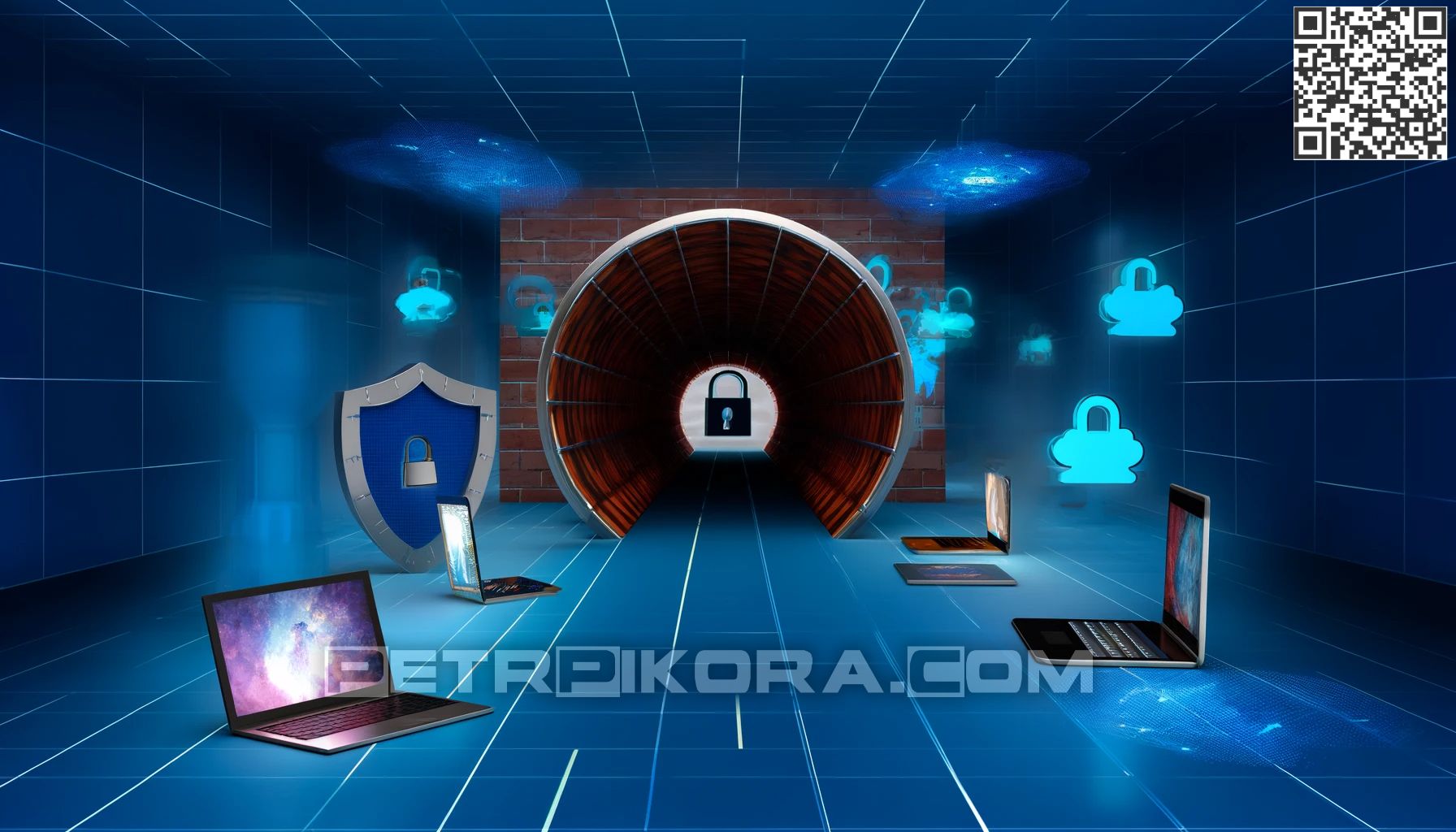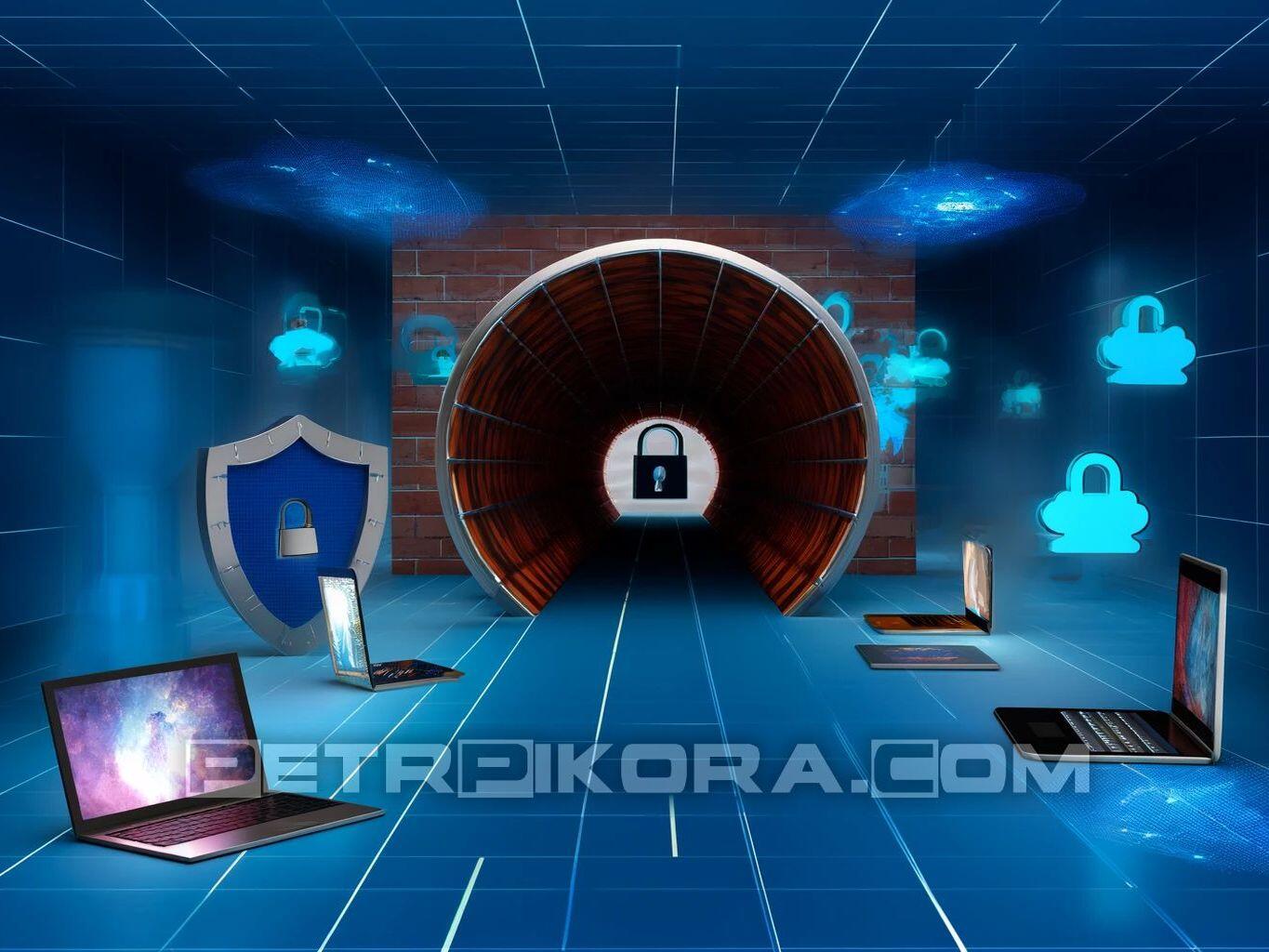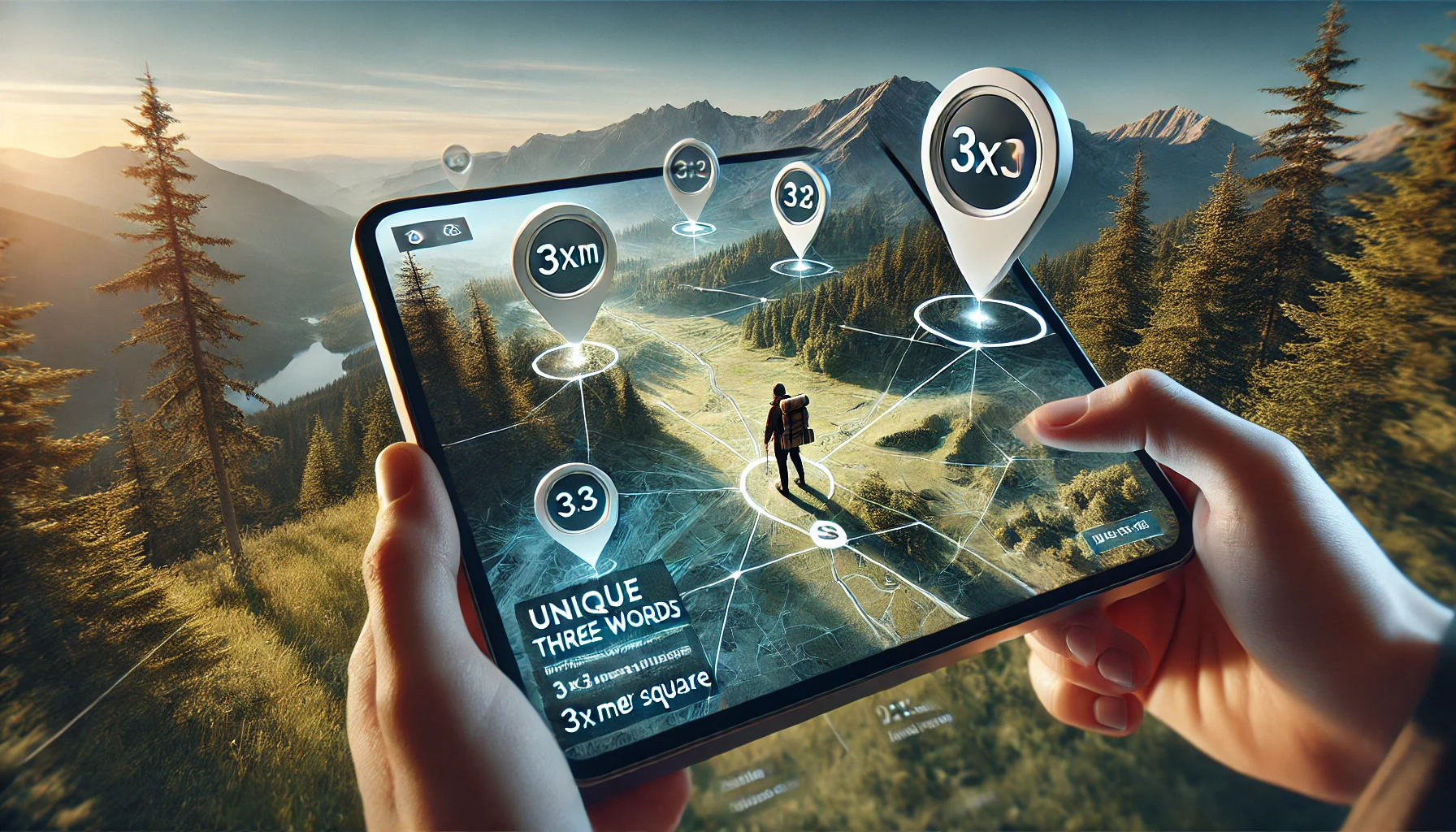
What is a VPN and how does it work?
-
The Ultimate Guide to Understanding VPNs
1Discover the ins and outs of VPNs with our comprehensive guide. From how they work to their benefits and uses, become an expert in no time. Say goodbye to confusion and hello to secure internet browsing.
In today’s digital age, online security and privacy have become major concerns for individuals and businesses alike. With the rise of cyber threats and government surveillance, it has become crucial to protect our online activities. This is where Virtual Private Networks (VPNs) come into play. But what exactly are VPNs and how do they work? In this comprehensive guide, we will delve into the world of VPNs and provide you with all the information you need to understand and utilize this powerful tool for safeguarding your online presence. From the basics of VPNs to their benefits and how to choose the right one for your needs, this ultimate guide will equip you with the knowledge to navigate the world of VPNs with confidence. So, let’s dive in and unravel the mysteries of VPNs together.
-
How a VPN Can Protect Your Online Privacy
1CopiedHow a VPN Can Protect Your Online PrivacyIn today's digital age, protecting your online privacy is more important than ever. One effective tool for safeguarding your personal information is a Virtual Private Network (VPN). By encrypting your internet connection and masking your IP address, a VPN can prevent hackers, government surveillance, and other prying eyes from accessing your sensitive data. With the rise of cyber threats, investing in a VPN is a crucial step in maintaining your online privacy and security. Don't wait until it's too late, start using a VPN today.
In today’s digital age, protecting your online privacy is more important than ever. One effective tool for safeguarding your personal information is a Virtual Private Network (VPN). By encrypting your internet connection and masking your IP address, a VPN can prevent hackers, government surveillance, and other prying eyes from accessing your sensitive data. With the rise of cyber threats, investing in a VPN is a crucial step in maintaining your online privacy and security. Don’t wait until it’s too late, start using a VPN today.
In today’s digital age, protecting your online privacy has become more important than ever. With the rise of cybercrime and data breaches, it’s crucial to take steps to safeguard your personal information. One effective tool for doing so is a Virtual Private Network (VPN). A VPN creates a secure and encrypted connection between your device and the internet, making it nearly impossible for anyone to intercept your data. This means that your online activities, such as browsing, streaming, and shopping, are kept private and protected from prying eyes. Additionally, a VPN can also hide your IP address, making it difficult for websites and advertisers to track your online behavior. By using a VPN, you can have peace of mind knowing that your online privacy is being safeguarded.
-
Exploring the Benefits of Using a VPN
1Discover the Advantages of Utilizing a VPN. With cyber threats on the rise, a VPN can provide a secure and private internet connection. From protecting sensitive data to accessing geo-restricted content, learn how a VPN can enhance your online experience.
In today’s digital age, the use of Virtual Private Networks (VPN) has become increasingly popular. A VPN is a secure and encrypted connection that allows users to access the internet privately and securely. This technology has numerous benefits, making it a valuable tool for individuals and businesses alike. One of the main advantages of using a VPN is the enhanced security it provides. By encrypting all data transmitted through the network, a VPN ensures that sensitive information, such as personal and financial data, remains protected from hackers and cybercriminals. This is especially important for those who frequently use public Wi-Fi networks, which are often vulnerable to attacks. Moreover, a VPN also allows users to bypass geographical restrictions and access content that may be blocked in their region. This is particularly useful for individuals who travel frequently and want to access their favorite streaming services or websites from anywhere in the world. In addition, using a VPN can also improve internet speeds and overall performance. By routing traffic through a remote server, a VPN can help reduce congestion and improve connection speeds, especially for those in areas with poor internet infrastructure. Furthermore, a VPN can also provide anonymity and privacy online. By masking the user’s IP address and location, a VPN ensures that their online activities cannot be traced back to them. This is especially beneficial for those who value their privacy and want to protect their online identity. In conclusion, the use of a VPN offers numerous benefits, including enhanced security, access to restricted content, improved internet speeds, and online anonymity. With the increasing threats to online privacy and security, utilizing a VPN has become a necessary tool for individuals and businesses looking to protect their sensitive information and maintain their online freedom.
-
VPN 101: How to Set Up and Use a Virtual Private Network
1Discover the ins and outs of setting up and utilizing a Virtual Private Network (VPN) with our comprehensive guide, VPN 101. Learn how to protect your online privacy and access restricted content with ease.
In today’s digital age, online security and privacy have become major concerns for individuals and businesses alike. With the rise of cyber attacks and data breaches, it’s crucial to take the necessary steps to protect your sensitive information. One effective solution is to use a Virtual Private Network (VPN). But what exactly is a VPN and how can you set it up and use it? Let’s dive into the world of VPN 101 and learn everything you need to know about this powerful tool.
-
The Top Reasons Why You Need a VPN
1Discover the top reasons why a VPN is essential in today’s digital world. From protecting your online privacy to accessing geo-restricted content, find out how a VPN can enhance your internet experience. Don’t miss out on the benefits of this powerful tool.
In today’s digital age, it has become increasingly important to protect your online privacy and security. With the rise of cybercrime and government surveillance, it’s essential to take measures to safeguard your personal information. One of the most effective ways to do this is by using a Virtual Private Network (VPN). A VPN creates a secure and encrypted connection between your device and the internet, making it nearly impossible for anyone to intercept your data. But beyond just protecting your privacy, there are several other reasons why you should consider using a VPN. Let’s explore the top reasons why a VPN is a must-have tool in today’s world.
-
Breaking Down the Technical Aspects of VPNs
1Understanding the Ins and Outs of VPNs: A Comprehensive Look at the Technical Components.
Understanding the technical aspects of virtual private networks (VPNs) is crucial for anyone looking to use this technology for secure and private internet browsing. VPNs work by creating a secure and encrypted connection between a user’s device and a remote server, allowing them to access the internet through this server instead of their own network. This not only hides the user’s IP address and location, but also encrypts their data, making it unreadable to anyone trying to intercept it. Additionally, VPNs use various protocols, such as OpenVPN, L2TP, and PPTP, to establish this connection and ensure the security and privacy of the user’s online activity. By understanding these technical aspects, users can make informed decisions when choosing a VPN provider and ensure their online safety and privacy. Unraveling the Complexities of VPN Technology In today’s digital age, having a solid grasp on the technicalities of virtual private networks (VPNs) is essential for those seeking a secure and private online experience. Essentially, a VPN creates a secure and encrypted tunnel between a user’s device and a remote server, allowing them to access the internet through this server instead of their own network. This not only conceals the user’s IP address and location, but also scrambles their data, rendering it indecipherable to any potential eavesdroppers. Moreover, VPNs utilize a variety of protocols, such as OpenVPN, L2TP, and PPTP, to establish this connection and safeguard the user’s online activity. By gaining a thorough understanding of these technical aspects, individuals can make well-informed decisions when selecting a VPN provider and ensure their online security and privacy.
-
VPN vs. Proxy: Whats the Difference?
1When it comes to online privacy and security, many people turn to either a VPN or a proxy. But what exactly sets these two tools apart? Let’s dive into the key differences between VPNs and proxies and determine which one may be the best fit for your needs.
When it comes to online security and privacy, there are two popular tools that are often used interchangeably: VPNs and proxies. While both of these tools can help protect your online activities, they have distinct differences that set them apart. In this article, we will explore the differences between VPNs and proxies and help you determine which one is the best fit for your needs. So, let’s dive in and discover the unique features of these two powerful tools.
-
How a VPN Can Help You Bypass Geo-Restrictions
1CopiedHow a VPN Can Help You Bypass Geo-RestrictionsA Virtual Private Network (VPN) is a powerful tool that can help you bypass geo-restrictions and access content from anywhere in the world. By masking your IP address and encrypting your internet connection, a VPN allows you to bypass censorship and access websites, streaming services, and other online content that may be restricted in your region. With a VPN, you can enjoy a truly global internet experience without limitations.
A Virtual Private Network (VPN) is a powerful tool that can help you bypass geo-restrictions and access content from anywhere in the world. By masking your IP address and encrypting your internet connection, a VPN allows you to bypass censorship and access websites, streaming services, and other online content that may be restricted in your region. With a VPN, you can enjoy a truly global internet experience without limitations.
In today’s digital age, the internet has become an essential tool for communication, entertainment, and information. However, with the rise of geo-restrictions, accessing certain websites and content has become a challenge for many users. This is where a Virtual Private Network (VPN) comes in. By using a VPN, you can bypass these restrictions and access content that may be blocked in your region. This not only allows for a more open and diverse online experience, but it also protects your privacy and security while browsing. With a VPN, you can break free from the limitations of geo-restrictions and explore the internet without boundaries.
-
The Dark Side of Free VPNs: Why You Should Be Wary
1The Hidden Dangers of Free VPNs: What You Need to Know.
In today’s digital age, the use of virtual private networks (VPNs) has become increasingly popular. These services promise to protect your online privacy and security by encrypting your internet connection and hiding your IP address. However, not all VPNs are created equal. In fact, there is a dark side to using free VPNs that many users are not aware of. While the idea of a free VPN may seem appealing, there are several reasons why you should be wary of using one. In the modern world, the demand for virtual private networks (VPNs) has skyrocketed as people become more concerned about their online safety. These tools offer the promise of safeguarding your privacy and security by masking your IP address and encrypting your internet connection. However, not all VPNs are trustworthy. In fact, there is a hidden danger lurking behind the use of free VPNs that many individuals are oblivious to. While the concept of a free VPN may seem enticing, there are numerous reasons why you should exercise caution when considering using one.
-
Real-Life Examples of How VPNs Have Saved Peoples Online Security
1CopiedReal-Life Examples of How VPNs Have Saved Peoples Online SecurityFrom preventing hackers from stealing personal information to bypassing government censorship, VPNs have become a crucial tool for protecting online security. In this article, we explore real-life stories of individuals who have benefited from using VPNs, highlighting the importance of this technology in today's digital world.
From preventing hackers from stealing personal information to bypassing government censorship, VPNs have become a crucial tool for protecting online security. In this article, we explore real-life stories of individuals who have benefited from using VPNs, highlighting the importance of this technology in today’s digital world.
In today’s digital age, online security has become a major concern for individuals and businesses alike. With the rise of cyber attacks and data breaches, it has become crucial to protect our online activities from prying eyes. This is where Virtual Private Networks (VPNs) come into play. VPNs have proven to be a lifesaver for many people, safeguarding their online security in real-life situations. Let’s take a look at some unique examples of how VPNs have saved people from potential online threats.















Zanechte komentář